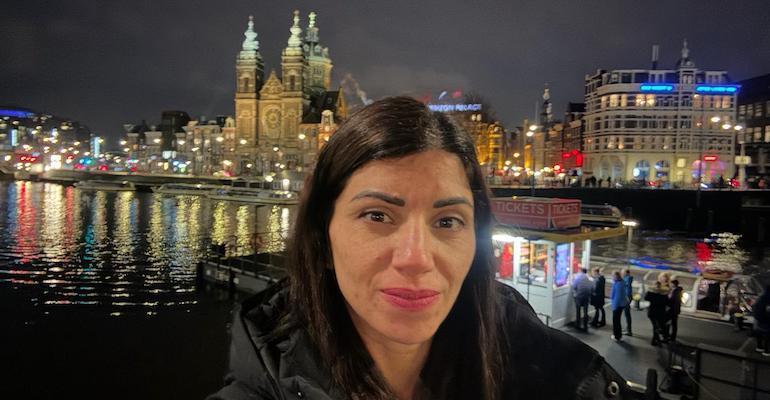Efstratiou is one of a new breed of International Transport Workers’ Federation (ITF) inspectors that were trained in London over a four-week period in February, with the courses taking inspectors to a new level of professionalism.
“It was huge for me, it felt like I’d just done another degree course in four weeks,” said Efstratiou, who added, “We went through a variety of topics during the training, it was very intense, but the main thing was being able to discuss issues with both the tutors and other new inspectors.”
Course leader, Peter Lahay, a former seafarer and lifelong union member told Seatrade Maritime News that the ITF inspectors have become more professionalised of the more than 50-year history of the union.
“When I started as an inspector you were lucky to get to go out with an inspector for one day, you just went and learnt as you did the job, but now we cram what I learnt over years into four weeks,” said Lahay.
Training sessions include courses on the role of P&I clubs, class societies, legal training including sessions on the Maritime Labour Convention (MLC) and human rights law, the role of the charterer and collective bargaining agreements, media training, and some health training and abandonment, an issue that is causing much stress for the union at this time.
Many of the modules have guest lecturers, specialists in their own field such as Lloyds Register, the International Group of Maritime Insurers, legal representatives and a doctor that discusses the possible health issues.
In the third week the entire class of 10 spend a week in field training, which in Efstratiou’s case meant heading to Amsterdam to visit a ship.
“When we got there, we were shocked to find there was no fresh food on the ship for the crew, they were living on dried food, the company were trying to save money and the captain had no budget for food. He didn’t like it, but we were able to force the captain to take on provisions. Then we went back with some presents for the crew, mainly food, biscuits and some luxuries,” explained Efstratiou.
In her previous employment Efstratiou had worked for a shipmanagement company in Cyprus as a crew management officer, but she said joining the ITF as an inspector was an enormous opportunity for me.
“Training with the group brought us together and we are keeping in touch, so when I went onto the container vessel to carry out my first inspection, I had realised that the crew were not being paid the 2024 wages that they were entitled to under their CBA [collective bargaining agreement] I needed a copy of the wage scales, so I texted the group and I had it within minutes,” said Efstratiou..
Gone are the days when the inspectors training is a pint in a bar the latest crop being trained will replace the old guard that have driven the ITF inspector to increasing levels of professionalism, according to Lahay who was instrumental in devising the first course back in 1999.
Over the years the course and the people have changed, reflects Lahay: “We have more women now, and every year that number is increasing.”
Equality is important, it is a serious responsibility and “training women inspectors brings a different sensitivity to the job,” explains Lahay, they bring a “unique view to the job.”
However, he stresses that relationships on board a vessel can be unequal and if an inspector understands that there is a problem within the crew, “it is their responsibility to escalate that to the employer, because inspectors cannot deal with these situations with one visit.”
I don’t believe that being a woman would be challenging for the position [of inspector], as we are dedicated in our mission, which is to stand for seafarers’ rights,” explains Efstratiou, who says she has placed women on board ships in the past without any issues.
“MLC does not discriminate between genders neither does ITF, which stands for diversity.”
For Lahay the training of women inspectors has brought only positives to the job. He relates the story of a Malaysian inspector trained in an earlier intake.
“We had no representation in Malaysia at the time but she has really made the difference, building relationships there,” said Lahay.
For Efstratiou, building relationships was one of the major elements of the course, with other inspectors, the ITF central office and the crews that she will come into contact with. She says that the first inspection was great, everyone welcomed her aboard.
For Efstratiou the training has been an emotional journey, whereas for Lahay and his colleagues that devised and ran the course the importance is about continuing to serve crew in what is a cut-throat business, when they are far from home and vulnerable, in a professional and effective way.
Copyright © 2024. All rights reserved. Seatrade, a trading name of Informa Markets (UK) Limited.
Add Seatrade Maritime News to your Google News feed.  |

